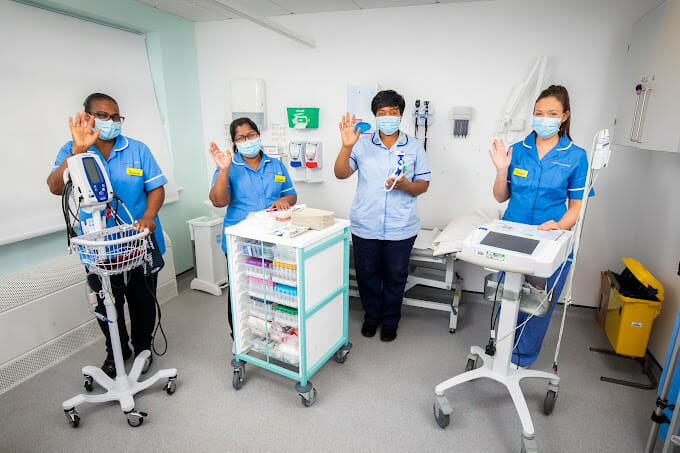Tympanoplasty

Our private Tympanoplasty services are provided at the Hadley Wood Hospital, High Barnet.
To find out more about our hospitals click here:
Tympanoplasty is surgery to repair problems within the middle ear, such as a hole or perforation in the eardrum.
Perforated eardrum
Eardrums can burst or perforate for a number of reasons, causing symptoms such as pain, sudden hearing loss or reduced hearing, and fluid leaking from the ear. It may also cause ringing in the affected ear (tinnitus) and a fever. Although they can sometimes heal on their own after a few weeks, it’s important to see a doctor as a perforated eardrum can put you at increased risk of infections, and sometimes the hole or perforation isn’t able to heal by itself.
The procedure
Tympanoplasty surgery is carried out under general anaesthetic, meaning you’ll be asleep during the procedure. A small incision will usually be made behind your ear, enabling the surgeon to access your eardrum and middle ear. The exact techniques used during surgery will depend on your individual needs. If necessary, the surgeon will be able to clear any diseased and infected tissue, alongside repairing the eardrum and correcting problems with the ossicles (the small set of bones that help enable us to hear sound).
Dressings will be applied to your ear, which may need to remain in place for around 1-2 weeks afterwards. Most people are able to go home the next day, although you may still feel a bit groggy and dizzy for a few days and it’s normal for the ear to feel painful as it heals. Painkillers will help and most people are advised to wait a couple of weeks before returning to work. Additional aftercare advice (such as avoiding getting water in your ear until it’s healed, and waiting until your surgeon gives the go ahead before certain activities like flying or contact sports) will be explained.
A follow-up appointment will be arranged so your consultant can check how your ear is healing and, if necessary, remove the dressing and any external stitches.
Tympanoplasty surgery is not 100% successful in all cases, and sometimes further treatment is required. However, most people experience very positive results.
Get in touch
